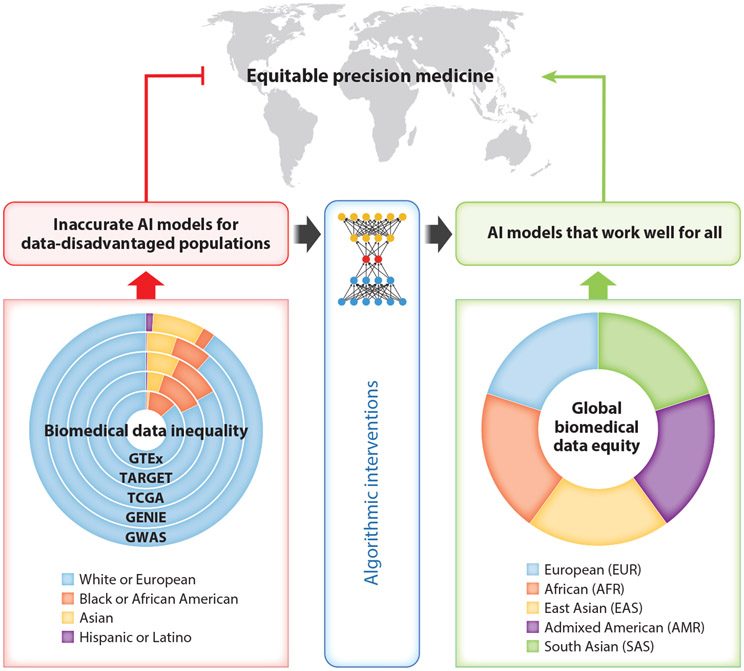Figure 1.
Addressing the challenge of data inequality for AI-powered precision medicine. The path of the status quo (left) leads to data inequality, a significant obstacle to achieving equitable precision medicine for all. The ring graph on the left shows the ethnic/ancestry compositions of GWAS using data from the GWAS Diversity Monitor (https://gwasdiversitymonitor.com/) and several representative clinical omics studies, including GTEx (https://gtexportal.org/), TARGET (https://ocg.cancer.gov/programs/target), TCGA (https://www.cancer.gov/about-nci/organization/ccg/research/structural-genomics/tcga), and GENIE (https://www.aacr.org/professionals/research/aacr-project-genie/), using data from GTEx Portal and NCI Genomic Data Commons (https://portal.gdc.cancer.gov/). The ring graph on the right is a conceptual illustration of the goal of biomedical data equity for global populations, represented by the five super-populations defined by the 1000 Genomes Project (135). Algorithmic interventions can attenuate, but may not be able to eliminate, the negative impacts of data inequality. A new path (right) is essential to achieve equitable precision medicine that works well for all ethnic/ancestry groups. Abbreviations: GENIE, Genomics Evidence Neoplasia Information Exchange; GTEx, Genotype-Tissue Expression Project; GWAS, genome-wide association studies; NCI, National Cancer Institute; TARGET, Therapeutically Applicable Research to Generate Effective Treatments; TCGA, The Cancer Genome Atlas.

